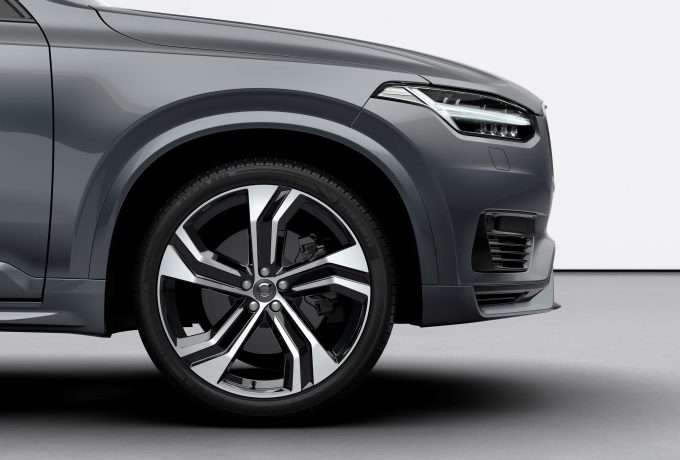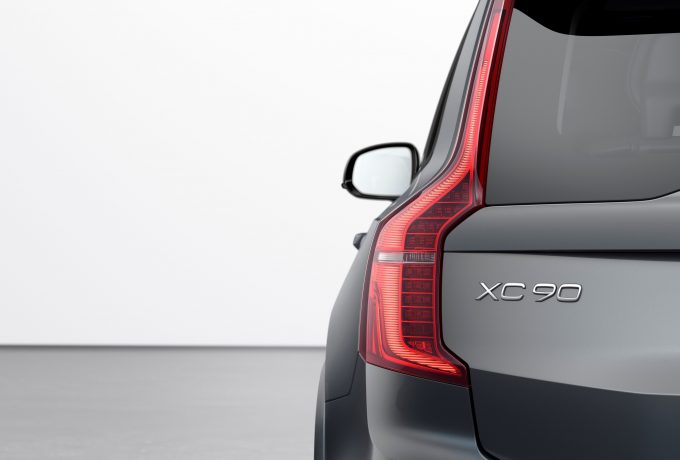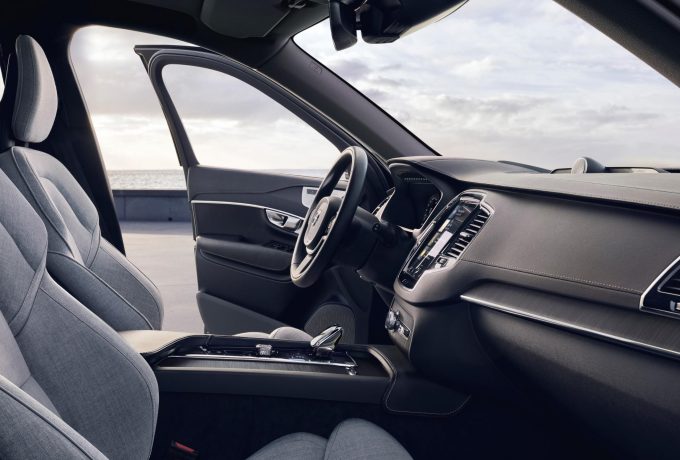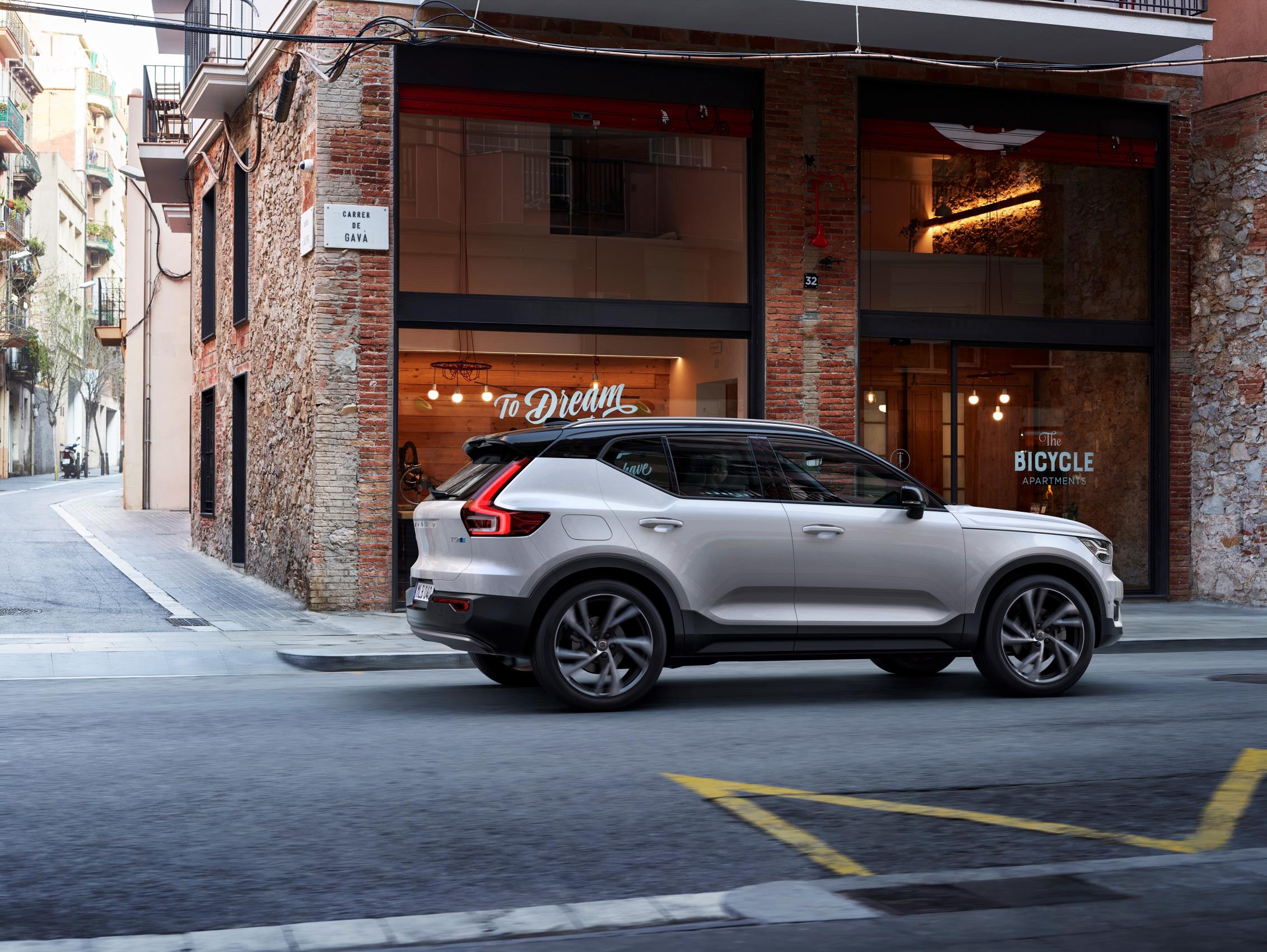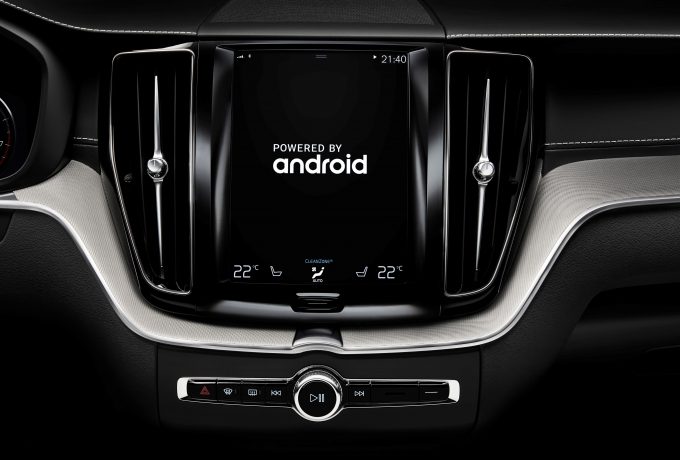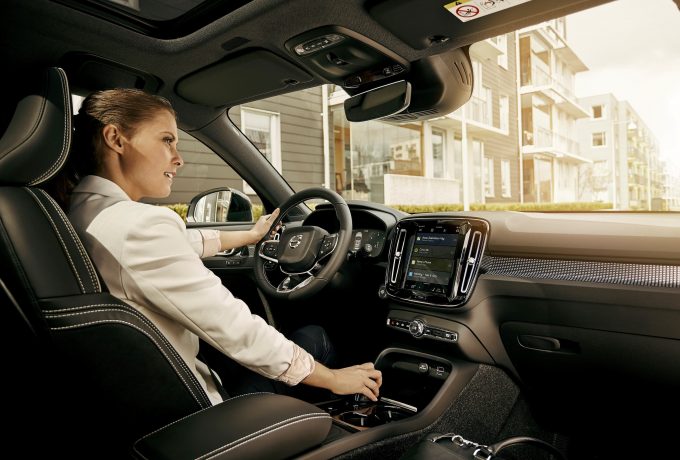Chief among the updates to Volvo’s range-topping SUV is an energy recovery system, that works with the existing combustion units and will wear the new ‘B’ badging.
The flagship XC90 can offer an 15% increase in fuel frugality and emission reductions, and the new brake-by-wire system works in conjunction with the energy-recovery system.
These new powertrains join the T8 twin-engine PHEV version of the XC90, which is subtly refreshed on the exterior, with new alloys, exterior colours and an updated grille at the forefront of the updates.
Safety features include blind spot information system, automatic city braking that recognises pedestrians, cyclists and large animals. So drivers will be helping save the polar bears in more ways than one… Oncoming lane mitigation still remains, having been introduced on the XC60, and the cross traffic alert technology also now works with the autobrake function.
The XC90 is also now compatible with Android Auto, joining Apple CarPlay, and the Sensus infotainment system also integrates Spotify in places throughout the XC90 range.
The 2020 model year version will enter production in Sweden this May, with UK orders opening in mid-March. Full pricing will come in due course, with first deliveries anticipated to be late in Q2 of this year.


